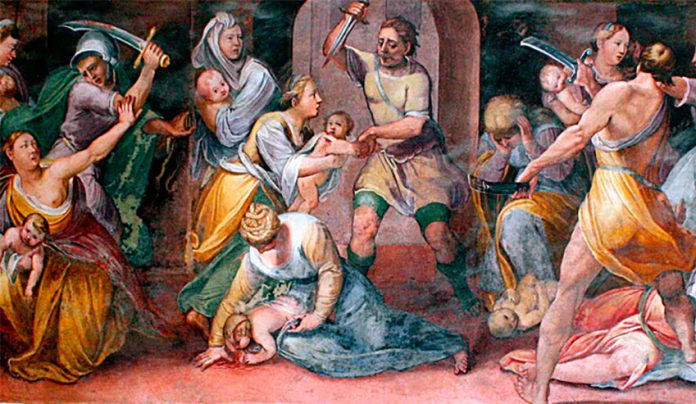There’s no need to wait until April to play a trick on someone: Mexico’s equivalent of April Fool’s Day is December 28.
Día de los Santos Inocentes (Day of the Holy Innocents) is a day for all kinds of practical jokes but beware of lending money. According to tradition, there is no obligation to pay back anything borrowed on this day.
The tradition is based on a tragic biblical story. According to the Gospel of St. Matthew, when King Herod was warned of the birth of the new king, the baby Jesus, he sent soldiers to kill all boys under the age of 2 to maintain a hold on his kingdom. The children killed on this day are known as the “Holy Innocents.” Jesus escaped the slaughter because his parents were warned by an angel and fled.
The date is set on December 28 in part because it is a few days after the celebration of Jesus’s birth.
But the concept of “a trick” comes into play because King Herod was fooled into believing that he had eliminated the threat, which he had not.
The concept of behaving in a naughty manner dates back to the Middle Ages in Europe, when there was a “festival of the crazies” between December 24 and 31. A blind eye was turned to many kinds of excess but the festival got out of hand in Spain, forcing King Phillip II to ban it. The celebration became a day associated with playing tricks and the practice of borrowing something to be returned on Candlemas, February 2.
Like other Spanish Catholic observances, this made its way to Mexico and has evolved in its own way. There is a phrase recited to those who have been fooled is “Inocente palomita que te dejaste engañar en este Día de los Inocentes, que en nadie debes confiar.” (Innocent dove, you let yourself be fooled on this Day of the Innocents, when nobody should be trusted.)
Source: El Sol de México (sp), La Razón (sp)
